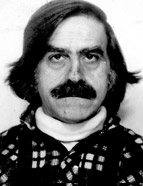

He dispensed, seemingly forever, with the world view matrix that had guided him from a sickly and sheltered childhood to a sober, studious, and tranquil youth. As a historian, in several of his texts he later associated these idiosyncratic periods with the mentality and life of inland Beira, from where his family had originated. There is little to report on the period he spent in Queirosian Leiria up to the age of fifteen, punctuated by rare, albeit lengthy and invigorating rural and mountain experiences. During the implementation of the Estado Novo [New State], he moved with his family to Lisbon where he completed secondary school, and where he experienced a different daily pace and a broader, far more troubled existence. His daily life and studies were closely supervised by his father, a scholar in Humanities and head of the secondary schools he attended. A.J.S. established new contacts in Lisbon, widened his readings, and encountered a larger set of mental and ideological alternatives.
His intellectualised perception of such new experiences brought him closer to the rationalist thinking of António Sérgio, a renowned essayist and neo-Kantian whose influence had a swift and efficient emancipatory effect on Saraiva’s malleable psychological organisation. This new angle of perception contributed not only to his definitive withdrawal from the “ethical Catholicism” instilled in him by his mother, but it also undermined some of his other certainties. It freed him rapidly, definitively or partially, but undoubtedly for a long period, from the burden of ancestral atavism and old-fashioned theoretical convictions – both the terms and meanings are his own – from Bergson’s intuition theory oddly tinted by the positivism of Maurras and Teófilo Braga, this latter influence translated into a poor, confrontational Jacobite rhetoric. From then on, he turned his back on that ideological corpus, viewed at the time as wholly obsolete, and believed himself capable of ascending to the domain of clear ideas “in this our first or second intellectual initiation” (Para a história da cultura em Portugal [Towards the history of culture in Portugal] (1946), preface to the 3rd edition. (1969), 4th ed. (1972), p.19).
He himself acknowledged that his adoption of Marx’s theory had been rendered easy by having embraced António Sérgio’s ideas as a young man.. His first tentative steps in political activism had been taken discreetly as a student at the Faculdade de Letras de Lisboa [Faculty of Arts of Lisbon] from where he graduated in Romance Philology in 1938 with a laureate thesis on Bernardim Ribeiro - Ensaio sobre a obra de Bernardim Ribeiro [Essay on the work of Bernardim Ribeiro] (1941).
